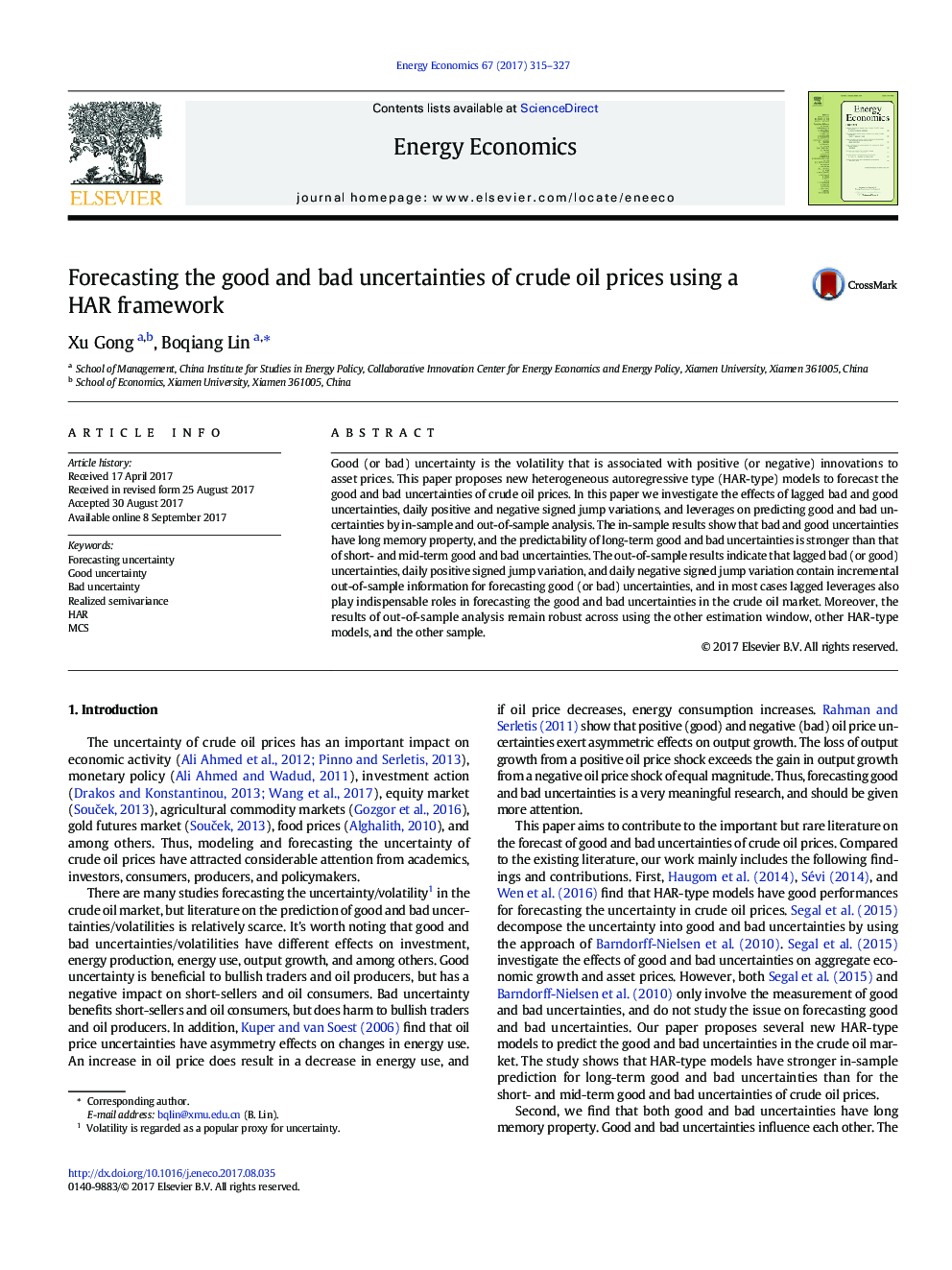| کد مقاله | کد نشریه | سال انتشار | مقاله انگلیسی | نسخه تمام متن |
|---|---|---|---|---|
| 5063591 | 1476697 | 2017 | 13 صفحه PDF | دانلود رایگان |

- We propose new HAR-type models to forecast good uncertainty.
- We propose new HAR-type models to forecast bad uncertainty.
- Good and bad uncertainties of crude oil prices influence each other.
- Signed jump variations contain forecasting information for good and bad uncertainties.
- In most cases leverages have positive effects on forecasting good and bad uncertainties.
Good (or bad) uncertainty is the volatility that is associated with positive (or negative) innovations to asset prices. This paper proposes new heterogeneous autoregressive type (HAR-type) models to forecast the good and bad uncertainties of crude oil prices. In this paper we investigate the effects of lagged bad and good uncertainties, daily positive and negative signed jump variations, and leverages on predicting good and bad uncertainties by in-sample and out-of-sample analysis. The in-sample results show that bad and good uncertainties have long memory property, and the predictability of long-term good and bad uncertainties is stronger than that of short- and mid-term good and bad uncertainties. The out-of-sample results indicate that lagged bad (or good) uncertainties, daily positive signed jump variation, and daily negative signed jump variation contain incremental out-of-sample information for forecasting good (or bad) uncertainties, and in most cases lagged leverages also play indispensable roles in forecasting the good and bad uncertainties in the crude oil market. Moreover, the results of out-of-sample analysis remain robust across using the other estimation window, other HAR-type models, and the other sample.
Journal: Energy Economics - Volume 67, September 2017, Pages 315-327